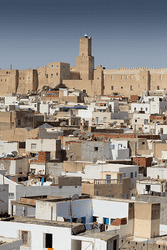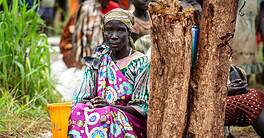Tunisia’s economic problems highlight the need for foreign direct investment to shore up its economy.

The fiscal position of Tunisia’s government and banking sector is in decline, according to Moody’s Investors Service. The agency lowered Tunisia’s sovereign rating in August from Ba3 negative (noninvestment grade, speculative) to B1 negative (highly speculative), citing structural deterioration, low growth, low investment and delays in promised reforms.
|
Vital Statistics |
|---|
|
Location: North Africa |
|
Neighbors: Algeria and Libya |
|
Capital city: Tunis |
|
Population (2017): 11,500,973 |
|
Official language: Arabic |
|
GDP per capita (2016): $3,688 |
|
GDP growth (2016): 1.2% |
|
Inflation (2016): 3.7% |
|
Currency: Tunisia Dinar |
|
Investment promotion agency: Foreign Investment Promotion Agency |
|
Investment incentives available: Income tax reduction in certain cases; VAT and customs duties exemptions in certain cases |
|
Ease of Doing Business rank (2016): 77 |
|
Corruption Perceptions Index rank (2016): 75 |
|
Political risk: Shaky coalition government: tension between executive branch and parliament, Protests over corruption and unemployment |
|
Security risk: Terrorist attacks; the governments of the United States, the United Kingdom and Canada have issued strong warnings about dangers in some areas. Continuing border problems with Libya Sources: Atradius Country Reports—Tunisia, British and Canadian Travel Advisories, Mosaïque FM, Transparency International, U.S. State Department, World Bank, World Population Review |
In the same month, Moody’s downgraded five Tunisian banks, pointing to a faltering economic environment and the government’s reduced ability to support them. “I’m not surprised. The banking sector is not in good shape, because it is short of capital,” commented a regional banker who is not affiliated with any of the banks downgraded by Moody’s but requested anonymity. “With the possible exception of private banks that are doing reasonably well, government banks are in a pretty sorry state.”
The Libyan crisis has had a negative impact. Tunisia used to attract large numbers of Libyan tourists, and thousands of Tunisians who went to Libya to work sent back remittances, another source of income that has declined.
The government has made serious efforts to make FDI opportunities more appealing. “As economic reforms are adopted by the parliament and implemented by the government, the business climate is expected to improve,” says Kaouther Bouzamitta, an attorney at the Central Bank of Tunisia focused on financial relations with foreign countries.
FDI investors in Tunisia face a number of challenges, including the possibility of terrorist attacks. The informal economy, which by some estimates accounts for 40% to 60% of the overall economy, forces companies to compete with smugglers. The cash-strapped position of the government and banks means that local capital has limited availability. Tunisia faces stiff competition for FDI from Morocco. “It’s very common to hear multinationals prefer Morocco over Tunisia,” says the banker.
The FDI environment also has some unknown factors that merit serious consideration. In August, Fadhel Abdelkefi, minister of development, investment and international cooperation and interim minister of finance, resigned. Abdelkefi had been a strong proponent of FDI with plans for attracting investors; the fate of those initiatives is not clear.
Upcoming municipal elections, now scheduled for December, hold another key to the FDI environment. “We are starting to get independents running for election against the big parties, which have been discredited,” the banker says, suggesting that independents who win can be expected to work aggressively to create jobs. “It’s a very important signal as to which direction the country is going. If I were a foreign investor, I would wait for this signal. It could change the whole game.”
|
PROS OF INVESTING IN TUNISIA |
|---|
|
Fewest limits on foreign equity ownership in the Middle East and North Africa region |
|
Majority of sectors open to foreign capital investment |
|
Series of loan guarantees by the US |
|
CONS OF INVESTING IN TUNISIA |
|---|
|
Sluggish economic recovery, especially the tourism sector since terrorist attacks |
|
Continuing fear of terrorism, including apprehensions about returning jihadists |
|
High unemployment (approx. 15%) |
For more information on Tunisia, check out our Country Economic Reports at: GFMag.com/gdp-data-country-reports.html



